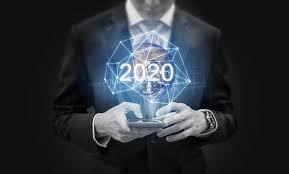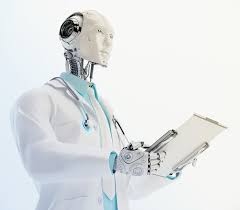Source: geospatialworld.net
Artificial Intelligence (AI) has the peculiar ability to simultaneously amaze, enthrall and intimidate. The possibilities of AI are innumerable and beyond the scope of our imagination. AI would be the bedrock of the era of connected mobility, automation and Industry 4.0, powering everything from analytics, decision-making, agriculture, logistics, to construction, aerospace and robotics. The global AI market is expected to reach $ 118.6 billion by 2025, and the intense rivalry between the US and China in the arena of AI is fast gaining momentum.
In 2017 China’s artificial intelligence startups took 48% of all dollars going to AI startups globally, which is more than that of the USA. In deep learning also China publishes six times more patents than the US. In the coming years, AI won’t be limited to powerful supercomputers and big devices but would be ubiquitous. Let’s have a look at some of the major AI trends for 2020.
Evolution of robotization
A legion of programmed robots replacing workers at the assembly line has become the most recurring and powerful image when we think of AI. Robotization is already underway, with a lot of companies trying their hands at robots for different purposes. What’s however new is that robots that were hitherto only employed for manual and tedious tasks would now begin to take on semi-skilled and skilled work as well: filling forms, creating reports, making animations, giving instructions etc. In short, from partial automation, we are looking at complete automation by training machines to do the requisite task. In Japan, by 2025, more than 80% of elderly care would be done by robots, not caregivers.
This will not only increase efficiency but also give us ample time and energy to focus only on core tasks that require human intelligence.
Data access enabling ubiquity
Data may or may not be the new oil, but it is certainly fueling and fortifying AI and making it more versatile. What often hinders the transition to AI-powered automated decision making is the lack of accurate and reliable information. This is among the major challenges which are gradually being overcome with the ongoing digitalization and options like a simulacrum of the real world. This has streamlined processes, slashed costs, improved research capabilities, and also allowed for gaining accurate data and information in the test phase.
For instance, developers of autonomous vehicle software can get access to uncountable hours of driving data without even the vehicle hitting the street. There would be a drastic increase in the use of AI for accurate real-world simulations. The increase in AI sophistication and capacity will lead to cost-effectiveness and widespread availability, with AI being incorporated in most of the gizmos that we use on a daily basis, making way for interconnected devices that can process information and learn on their own.
Enhanced customization
For staying ahead of their competitors and preparing themselves for the hyper-transforming realm of business, companies fall over themselves to gain insights in real-time, know about customer preferences and deliver services to them accordingly. Real-time data and all-pervasive location intelligence has mainstreamed customized services in almost every field, from urban mobility to online marketplaces. With soaring customer expectations, companies need to provide more personalized and relevant services to retain customer base and remain relevant. This is where AI will come in the picture. The increasing use of AI-based applications in every field, coupled with advances in location intelligence, will augment the capacity for offering more refined personalized services.
Boosting Cybersecurity
Mounting concerns about data privacy and security breach have also lead to questions being raised about the security preparedness in the age of AI and IoT. It is estimated that by 2020 over 24 billion devices connected to the internet would be installed. The number of connected devices used in households is predicted to increase from 9 devices per household currently to 500 by 2022, as per the research house Gartner.
Increased Cloud capacity and Machine Learning trained algorithms would also mean that cyberattacks like hacking and phising would be more high-tech and difficult to detect. Conventional cybersecurity will come to naught in this case and we will need expert AI-bolstered cybersecurity mechanisms to safeguard ourselves from such malicious attacks.
Without using AI, conventional systems will no more be able to continuously detect and monitor new malware that is created at an unprecedented pace. Big cybersecurity firms have started using AI for pattern recognition to detect viruses and malware. These new systems can spot even the smallest aberration or distortion even before the malware intrudes into the system. Another advantage of AI is that it has the power of predictive functioning.
AI complementing humans
Bill Gates, Microsoft founder and philanthropist, said last year that AI can be our friend and be beneficial for the society. AI won’t compete or supersede humans. Nor would there be a ‘rise of machines’ like ominous scenario. While a lot of jobs would be lost due to AI, many others would be created and human but capacities enhanced with the help of real-time data analytics. Reskilling would be common in the age of AI and as per a survey by IDC by 2025 over 75% of organizations will invest in reskilling programs to bridge the rising skill gap. According to a 2018 report, the approximate number of qualified researchers currently in the field of AI is 300,000, while companies require a million or more AI specialists.


